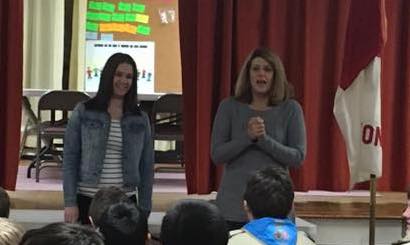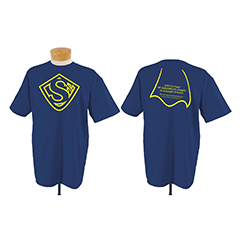
Spend quality time with your children. That’s what those darn parenting experts love to preach.
However, they obviously don’t understand how challenging that can be when your children’s interests vary greatly from your own, as they do in my imperfect home.
I’m a tomboy for goodness sake. My idea of quality time is putting on my sweatpants and team jersey and watching the New England Patriots play football. It’s “deflating” to me that my daughters have no interest in my interest, as my 17-year-old, younger daughter proved when she relayed some news during a recent dinner.
“Mom, guess what? My friend met some basketball player for the Patriots!”
“Uh Honey, the Patriots play football.”
In truth, my girly-girl daughters’ interests don’t exactly interest me either. They like shopping, or more specifically, shopping for themselves. And their favorite stores aren’t exactly mine.
“Let’s go to Forever 21, Mom!”
“That store is so confusing! They call it Forever 21 because it only takes 21 seconds to give me a headache.”
Recently, however, my 17-year-old daughter, Emily, and I had the opportunity to do something amazing together; something that brought us both unexpected joy and fulfillment.
We spoke to a local Boy Scout Troop about invisible and visible disabilities.
The opportunity came from my friend, Jessica, a passionate troop leader. As part of her leadership goals, she wanted to teach the Scouts to accept others with disabilities and promote peer mentoring and coaching.
Emily and I were a little nervous; this was our first time speaking to children. We did, however, take comfort with the fact that these were not traditional men in uniform.
“Don’t worry, Em; they’re not armed. They can’t shoot us if we bore them.”
I began by telling the Scouts about my older daughter’s journey with autism.
“Kids were constantly calling my daughter weird because she flapped her hands.”
“She hardly ever got invited to birthday parties and didn’t have many friends.”
“Every night when I put her to bed, she would cry and ask. ‘Why am I different, Mom?’ and I would go to my room and cry.”
The Scouts listened intently.
I then asked them if they knew “quirky” kids like my daughter at school and they nodded their heads in agreement.
Then, I introduced them to Emily. I asked them if they could tell that Emily had disabilities and differences. They shook their heads, “No.” I told them about the category of disabilities known as invisible disabilities, and shared stories about famous people who have them.
“Did you guys know that Daniel Radcliffe, Harry Potter, has a disability that makes it hard for him to tie his shoes?”
“No way!” They exclaimed.
“Did you know that Justin Timberlake has OCD? And Michael Phelps ADHD?”
Then Emily explained her “invisible” challenges. “I have learning struggles. I don’t comprehend things that I read. School has always been really hard for me. I feel stupid sometimes.”
She also told them about her biggest challenge — anxiety. We asked the boys if they knew the definition of anxiety and one bright young man raised his hand and said, “It’s when you worry a lot and you’re like afraid to do things because of it.”
Emily agreed. “Yeah, like I worry about things I can’t control. Like the weather.” She also shared her worries and fears about driving a car. “I was in no hurry to get my license because I’m scared to drive.”
We talked about other invisible disabilities, including mental health disabilities, such as depression and bipolar disorder. The boys were familiar with them, providing spot-on definitions.
We closed our discussion by asking the Scouts to do a few things:
- To not be so quick to label other kids as “weird” or “stupid” or “crazy” because they have disabilities.
- To recognize that everyone has something that they are dealing with even if they can’t see it.
- To be kind to those who are different — maybe sit with someone who is alone at lunch or invite them to play at recess.
- To understand that just because someone has a disability doesn’t mean they are not smart or interesting or that they won’t be successful.
- To recognize that other Scouts might struggle with certain tasks and they should offer to help.
Most importantly, we told them that if they did one little act of kindness to a struggling Scout or classmate, they could make a world of difference not only to that child, but also to his mother, father, and whole family.
They seemed to like that.
We sure did.
At the end of the talk, Jessica approached us. “Wow! Thank you so much. They are never that attentive.”
When we walked to the car to go home, Emily gave me a hug and said, “Mom thanks so much for letting me come. I loved it.”
That’s when it hit me; I didn’t need to watch my beloved Patriots to experience a real win with my daughter.










No comments yet.